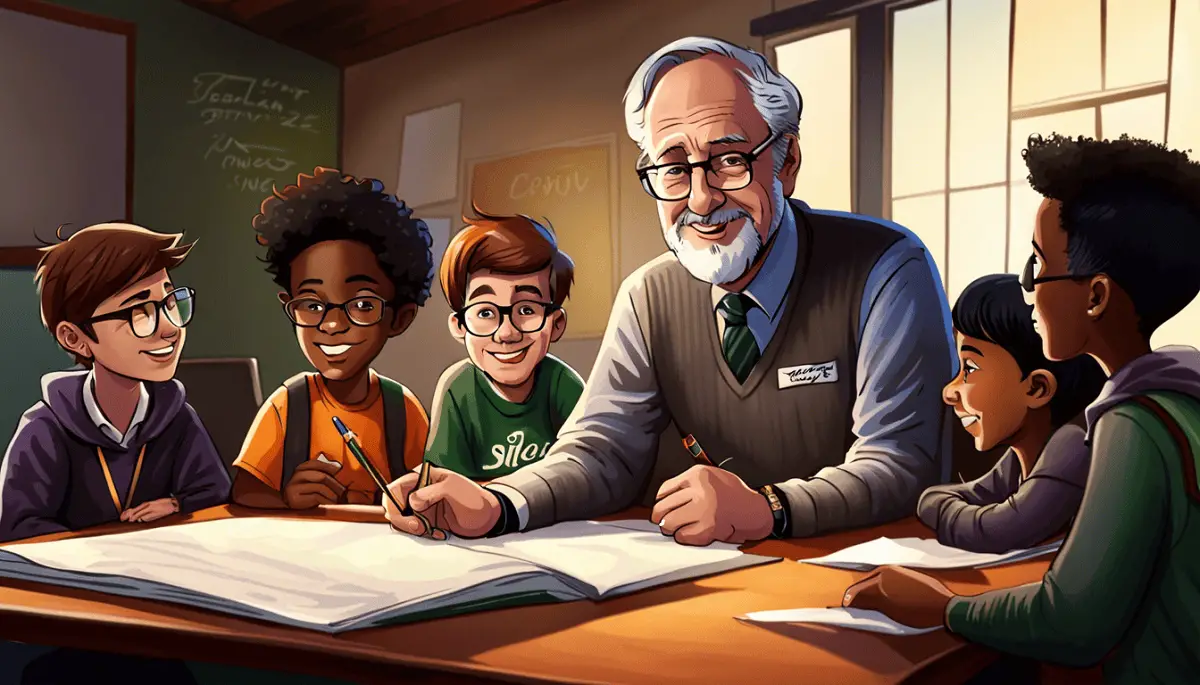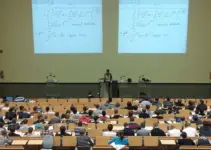This article deals with influential people in the educational system particularly in shaping the curriculum as we know today. It also talks about their specific contributions that can still be observed by the present generation of learners.
Let’s enumerate and discuss the 6 curriculum theorists and their contributions to education by chronological order.
Table of Contents
The Six Famous Curriculum Theorists
1. Franklin Bobbit (1876-1956)
Bobbit posits that the organization and sequencing of learning objectives and activities should be undertaken only after a thorough clarification of instructional tasks and activities. He perceives the curriculum as a scientific discipline that prioritizes the needs of the students.
This perspective elucidates the rationale behind the meticulous planning and organization of lessons based on the students’ needs. It underscores the imperative for teachers to address these needs effectively, thereby equipping students with the necessary skills and knowledge for their adult lives.
2. Werret Charters (1875-1952)
In addition to prioritizing the needs of students, Charters advocates for the alignment of objectives and corresponding activities with the subject matter or content of the curriculum. Consequently, department heads or course coordinators meticulously examine the congruence between objectives and subject matter as prepared by faculty members. This ensures that the educational goals are directly relevant to the course content.
3. William Kilpatrick (1871-1965)
For Kilpatrick, the purpose of curriculum is child development, growth, and social relationship. He also introduced the use of small group interaction, and the project method in which the teacher and students plan together. Thus, it is called as the child-centered curriculum.

4. Harold Rugg (1886-1960)
Harold Rugg, an American educator, significantly contributed to the development of the curriculum. He earned a bachelor’s degree in civil engineering and a doctorate in education, which he applied to reassess how curriculum was created. His work in the National Society for the Study of Education’s yearbooks provided groundbreaking syntheses of the fields of social studies and general curriculum. He introduced the concept of the development of the whole child, the inclusion of social studies, and the importance of curriculum planning in advance.
In the 1920s, Rugg advocated for an integrated, coherent program of social studies and focused the curriculum on students’ investigations of social problems. His influential work, “Man and His Changing Society”, encouraged students to explore potential solutions to social problems in the United States. This pattern of creating textbook series became a model in publishing still used in the early twenty-first century. His contributions continue to influence educators and curriculum designers, emphasizing the importance of an integrated, student-centered approach to learning.
5. Hollis Caswell (1901-1988)
Hollis Leland Caswell was an American educator and a significant figure in curriculum planning.
Caswell’s work emphasized the importance of the learner’s experience in curriculum development. He believed that curriculum should be designed around the needs, interests, and abilities of students, rather than being subject-centered. His approach was influential in shifting the focus of curriculum development towards a more student-centered model.
His contributions to the field of education have had a lasting impact, shaping the way curriculum is designed and implemented in schools today.
6. Ralph Tyler (1902-1994)
And as to the hallmark of curriculum development as a science, Ralph Tyler believes that curriculum should revolve around the students’ needs and interests. The purpose of curriculum is to educate the generalists and not the specialists, and the process must involve problem solving. Likewise, subject matter is planned in terms of imparting knowledge, skills and values among students.
To sum it up, the famous curriculum theorists have almost similar views. All of them believe that the curriculum should be learner-centered – addressing the needs and interests of the students. All of them have salient contributions to the educational system of the world today.
If you are an observant student, you might ask the following questions about your teachers:
- Why is it that we are required to do projects, solve problems, and work in groups?
- Why is it that our teachers are being observed in class, and their lesson plans or syllabi are checked?
- Why is it that all of us should take social studies, and not only the 3Rs?
- Why are the lessons being prepared in advance?
- Why should we experience what we have learned?
- Why do our teachers integrate values in our lessons?
- And why is it that the school is after our development as whole individuals (to become generalists) and be ready to face life’s challenges?
The answers to your questions are the people behind our educational system. They are the curriculum theorists.
Now, would you like to become one someday?
References
Bilbao, P. P., Lucido, P. I., Iringan, T. C., and Javier, R. B. (2008). Curriculum development. Philippines: Lorimar Publishing, Inc.
Burton, L. D. (2015, July 02). Harold Rugg | American Educational Reformer, “Man and His Changing Society” | Britannica. Encyclopedia Britannica. Retrieved December 25, 2023 from https://www.britannica.com/biography/Harold-Rugg
© 2014 December 3 M. G. Alvior | Updated 2023 December 25



Please Dr Alvior, Can you pleasez give me a personal description of the term Curriculum for me. It will be a treasure. Thank you
Reply to Armstrong Zitta’s question: ” the major difference between a curriculum specialist and a curriculum theorist.”
Curriculum Specialists provide support to teachers by helping create and raise materials used in the classroom. Their job typically involve research and requires them to find appropriate textbooks and curricular in order to improve the learning outcomes of the schools.
Curriculum theorists on the other hand, employ behavioristic social science orientation and attempt to develop curriculum theory with laws and principles tested through research.
Reply to Zemenu’s question: “What is the implication of curriculum theory for curriculum development?”
I would say that one major implication of curriculum theory for curriculum development is, according to Herbert M. Kliberd, “the laying to rest of a common misconception about the field.”
This misconception takes the form of assuming that curriculum development is a relatively neutral, technical activity, that is, we often assume that curriculum development consists of using well-established, standardized means to accomplish certain agreed-upon ends. Although the common tendency in a technological society like ours is to treat problems as if they were amenable to a standard technique, curriculum problems remain resistant to this approach.
What did WILLIAM KILPATRICK (1871-1965) meant when he introduced the use of small group interaction, and the project method in which the teacher and students plan together.?
any new education theory or curriculum theory now a days ?
Any theory about implimentation curriculum?
Can you name me 3 well regarded researchers regarding how U.S. school are addressing the diverse needs of students and wh
at they recommend for future interventions?
Hi… can someone differentiate to me the major difference between curriculum specialist and curriculum theorist?
what is implication of curriculum theory for curriculum development?
How would you use the four foundations of curriculum to analyse the curriculum?
I would like to know how these foundations of curriculum affects learning.
why we learn??????
Hi, Daphel. The foundations of curriculum are philosophy, history, psychology and sociology. The objectives, contents, and evaluation are some of the essential parts of the lesson plans or syllabi.
are the foundation of curriculum philosophy,historical,psychology, or objectives,content,evaluation which one are correct??????
Yes,the curriculum should focus on student-centered approach so that students with individual needs will be addressed
I agree with you, Ngwuta.
is there any theory which is suitable for making and presenting assignment and ppt ?
Hi, An M.ed student. I am not sure. I think try other sources for that topic.
this are the theories which is more important now please mention some more theory …. which is important.
Hi, Dhananjay. If I have time to write, I will. But for now, try to search from other sources. Thanks.
please name personalities who contributed to curriculum especially on the four foundations of curriculum and please classify them. That would be a big help for me. Thank you in advance 🙂
Hi, Bernadette. You must be writing your question in the Four Major Foundations link, https://simplyeducate.me/wordpress_Y/2015/01/09/4-major-foundations-of-curriculum-and-their-importance-in-education/
Thanks.
good morning, can i ask for outstanding personalities in the curriculum clusters?? at least 1 in each cluster. together with their biohraphy and contribution???
philosophical foundation
historical foundation
psychological foundation
sociological foundation
wow just take curriculum is changing from time to time.
Hi, Isyaku. Yes, curriculum is changing from time to time as the need arises but the ideal time is 5 years in order to change it.
What about Hilda Taba and Peter Oliva? Who are they?
curriculum model developers
Hi, Patu. What do you mean by your comment?
You are right, Patu. Taba and Oliva are curriculum model developers.
Hello, Feb. Hilda Taba is also famous. Tyler and Taba curricular model is widely used in education particularly in the Philippines. However, the nature of the article is to come up only with 300-500 words. It doesn’t mean that Hilda Taba and Peter Oliva are not famous when I wrote this article. Perhaps, you can write another article containing the other famous curriculum theorists. Thanks so much.
Hello maam Mary I’m students of Saint Francis College can you give me an examples of B.A.S.I.C principles of curriculum content of each.. Thank you..
they are the class room visitor not theorists…..
Thanks a lot, An M.ed student. Taba and Oliva are classroom visitors or supervisors but they contributed so much to curriculum development by creating their own models of curriculum. Thus, they are considered by others as curriculum theorists.
Hi, Feb. Patu M Tugga is correct. They are curriculum model developers.